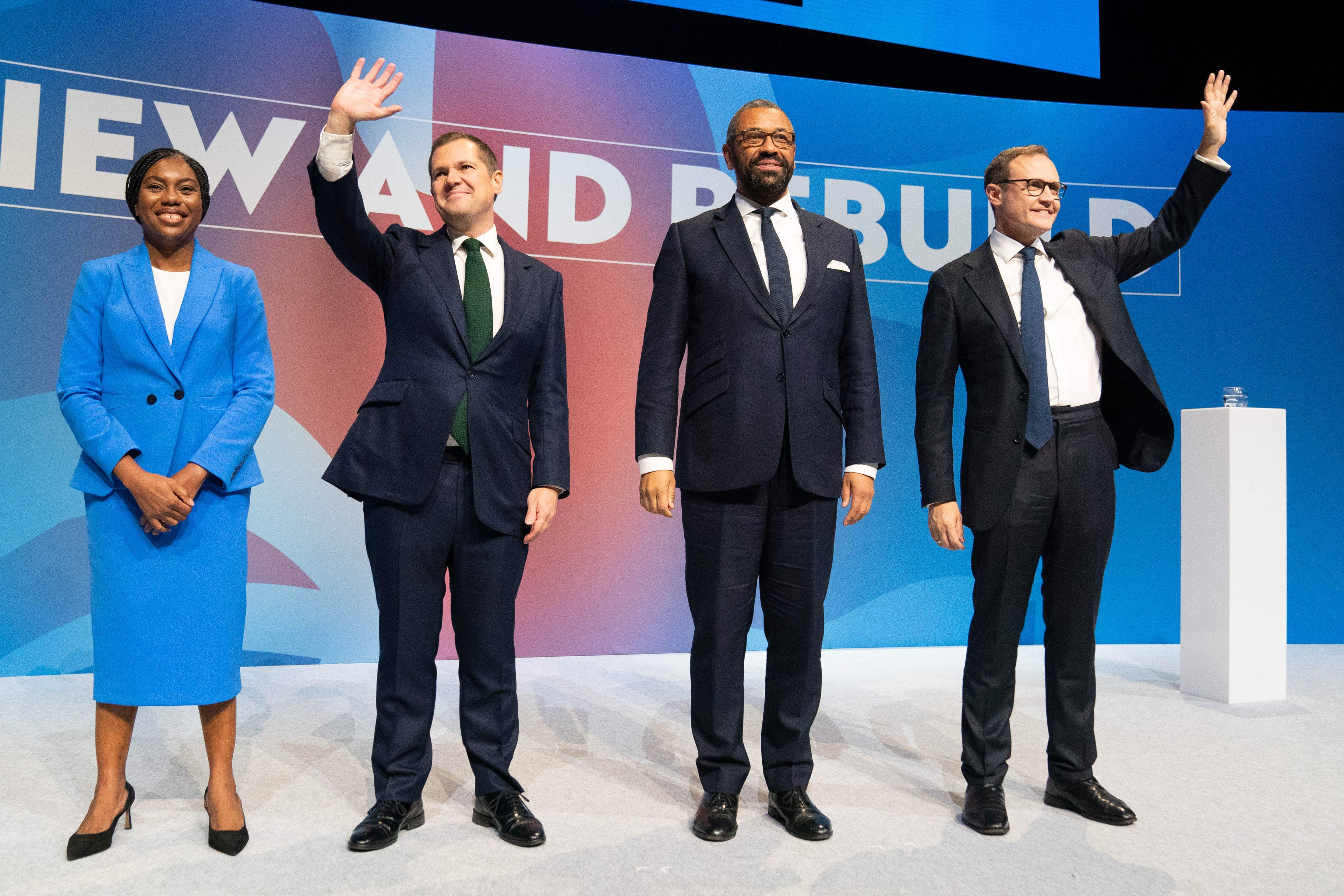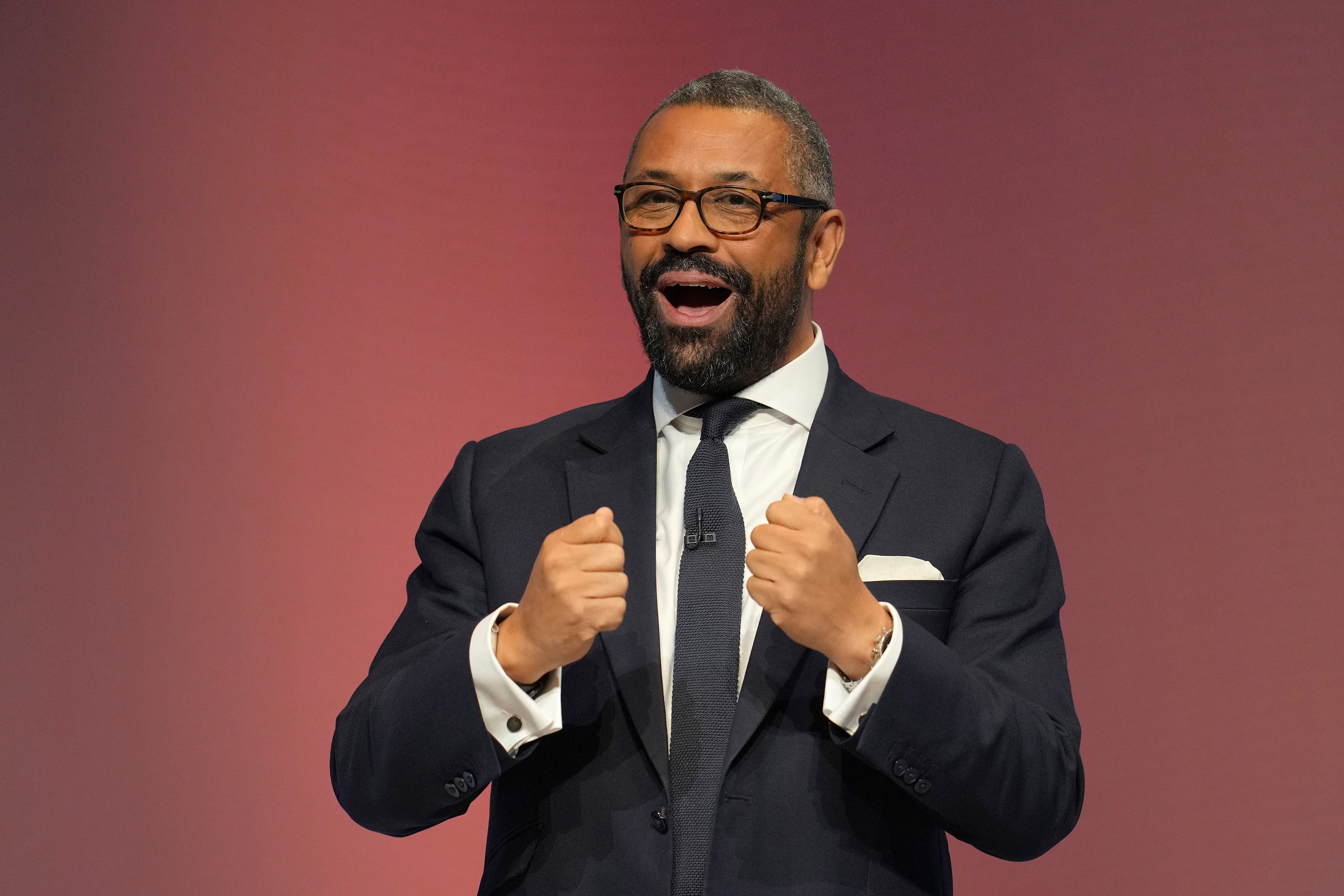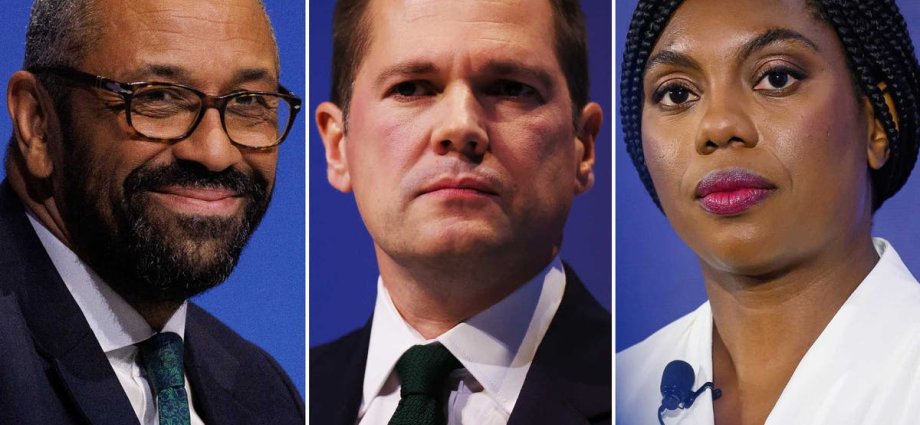Conservative MPs stunned Westminster by pivoting to the right and ditching centrist candidate James Cleverly in the race to succeed Rishi Sunak.
In a shock result, the former home secretary was knocked out of the contest on Wednesday afternoon, leaving Robert Jenrick and Kemi Badenoch – both candidates favoured by the right of the party – to face a vote of the membership.
Tory MPs appear to have calculated that they need to move to the right to win back votes from Nigel Farage’s Reform UK as well as bringing back stay-at-home voters. While elections are usually won from the centre ground, more former Tory voters switched to Reform than to Labour and the Lib Dems combined.
It meant that Sir Keir Starmer was able to win a massive majority with fewer votes than Jeremy Corbyn achieved when he was humiliated by Boris Johnson in 2019.

The result came despite Mr Cleverly surging into first place at Tuesday’s ballot after securing the support of 39 MPs.
Many watchers expected the bookmakers’ favourite to battle it out with one of his more right-wing rivals in the final head to head.
But in Wednesday’s round of voting, he managed only 37 votes, while Ms Badenoch secured 42 votes and Mr Jenrick 41.
It has led to allegations of vote lending and suggestions that the Cleverly camp may have overestimated their support and asked MPs to back Mr Jenrick in the belief he was the most beatable in a two-horse race.
Mr Cleverly’s elimination from the contest came one day after fellow centrist candidate Tom Tugendhat, a former security minister and favourite of the One Nation caucus of Tory MPs, was knocked out after being backed by just 20 votes.
The former home secretary’s elimination comes despite him appearing to win over both MPs and party members at their annual conference in Birmingham, with his speech on the main stage receiving the best response of the four candidates.
Meanwhile, Ms Badenoch’s progression to the final two comes in spite of several hiccups over the course of the conference, with missteps on maternity pay and her suggestion that some civil servants “should be in prison”.
The final two MPs will now face an online ballot of Tory members from 10 to 31 October, with the winner of the contest announced on 2 November.

After Wednesday’s results were announced, Mr Cleverly expressed thanks for the support he received throughout the campaign, calling for the party to unite in order to “take on this catastrophic Labour government”.
But within minutes of the results being declared, Mr Jenrick – who has ramped up his rhetoric on migration in recent weeks – attempted to draw dividing lines between himself and Ms Badenoch, with a campaign source saying the race is “now a choice between Leave or Remain in the ECHR”.
Mr Jenrick previously told supporters the party must decide to leave the convention “or die”, warning that remaining means “subjecting our people to dangerous criminals on our streets”.
But Ms Badenoch’s team have indicated the remarks misrepresent her position, saying she will leave the ECHR “if necessary… but that will be part of a full plan not just a throwaway promise to win a leadership contest”.
Responding to Wednesday’s ballot, Labour Party chair Ellie Reeves said Tory members have the “unenviable task of choosing between two of the architects of Tory failure”.
“Both Kemi Badenoch and Robert Jenrick are central figures in 14 years of hapless leadership and decline, and have already proven they’ve learned nothing from the mistakes that took the Conservative Party to its worst defeat in modern history.
“While the endless bickering continues, Labour is fixing the foundations and sorting out the mess that these two deeply unimpressive figures left behind”, she said.
In the wake of the result, Mr Jenrick’s campaign threw down the gauntlet to Ms Badenoch, challenging her to a series of debates through the remainder of the campaign, with the first in the coming week.
A Jenrick campaign source said he is “in favour of debate any time, any place and anywhere”.
The source added: “The members will face a choice between voting for a candidate with a serious plan, detailed policies to fix the three biggest issues concerning four categories of voters – Reform, Labour, Lib Dem and Conservative voters – the NHS, the economy and migration.
“Or risking being drawn into endless rabbit holes, Twitter spats and distractions.”











